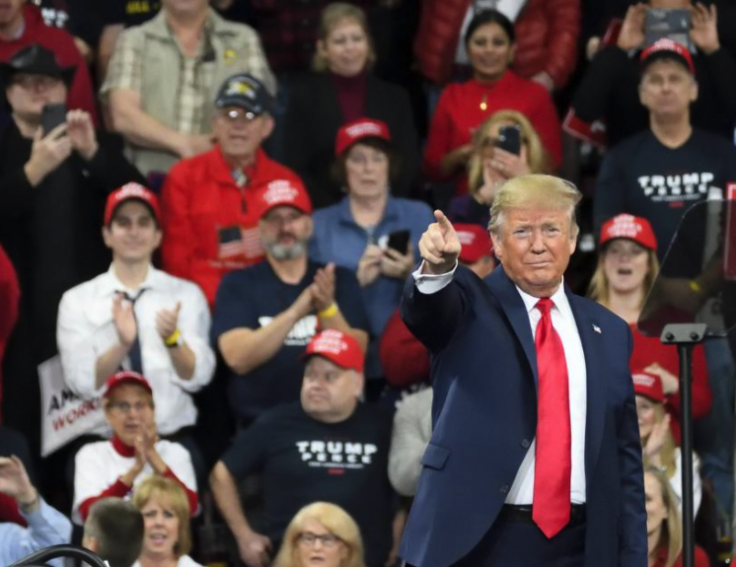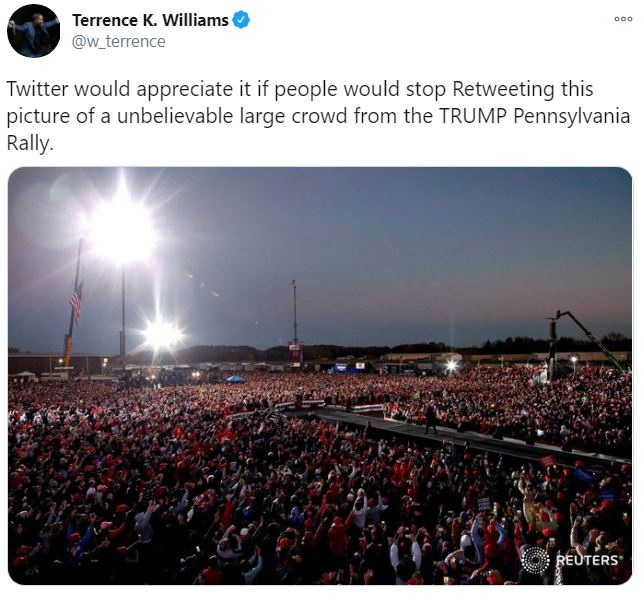Recently, a Columbia University's study said hundreds of thousands of Americans could have been saved if the White House acted right to prevent the Coronavirus pandemic. Now, Stanford researchers estimated that President Donald Trump's rallies not only triggered more cases in the country but also caused hundreds of COVID-19 related deaths.
Even though Trump described his election campaign rallies as "fun," "wonderful" and "the greatest show on earth," entertaining people with his dance skills, these rallies have turned into super-spreading events. As estimated by researchers, all the rallies happened in the midst of the Coronavirus pandemic have led to over 30,000 additional COVID-19 cases and 700 additional deaths due to the infection.
As per the researchers from Stanford University, those fatalities would not have happened if the campaign events had not taken place. Media coverage of the rallies showed it clearly that there were no efforts to strictly follow guidelines about social distancing and wearing mask was optional among the thousands of attendees. The researchers also concluded that "the communities in which Trump rallies took place paid a high price in terms of disease and death."

Super-Spreading Events
The new study, led by B. Douglas Bernheim from Stanford University's Department of Economics, was posted on a website in which social science researchers share their primary work and other scholars provide their feedbacks.
The authors of the study said, "We investigate the effects of large group meetings on the spread of COVID-19 by studying the impact of eighteen Trump campaign rallies. To capture the effects of subsequent contagion within the pertinent communities, our analysis encompasses up to ten post-rally weeks for each event."
Their findings suggested that the increased number of COVID-19 cases and deaths certainly reached beyond the ardent Republican supporters who attended the rallies, rippling outward to ensnare others in their cities and towns. After the study came out, Joe Biden's spokesperson Andrew Gates said that the research findings support Democrats' long-standing charge that Trump's campaign gatherings have been "super-spreader rallies that only serve his own ego."
However, Trump's campaign spokeswoman Courtney Parella said that the attendees are required to submit to temperature checks and are given masks, as well as hand sanitizer while entering. She told Politico, "We take strong precautions for our campaign events."
Mass Gathering and Coronavirus Transmission
Bernheim and his colleagues—Nina Buchmann, Zach Freitas-Groff, and Sebastián Otero—focused on those 18 rallies which took place between June 20 and September 22—three of them held indoors, which increases the risk of SARS-CoV-2 transmission.
The lead author of the study, Bernheim said during an interview that the infection varies from county to county, but using an array of statistical methods to make apples-to-apples comparison, the pattern was clear. According to him the mass gatherings likely caused the chains of Coronavirus transmission which were long as well as random.
They traced the effects of those chains for up to 10 weeks during which an infected attendee might pass the virus to a grocer, who may pass it to his son, who transmits it to a friend and the chain goes on.
Researchers analyzed two Wisconsin rallies that appear to have triggered the most dramatic rise in COVID-19 cases and the positivity rate was strongly evident before testing was taken up. In Marathon County, the Coronavirus positivity rate started to rise immediately after the September 17 rally and when it continued to climb, only then the testing rate rose. Similarly, in Winnebago County, the positivity rates roughly doubled over the first four weeks following the August 17 election rally.
However, the lead author Bernheim said, "I reason from data to conclusions. In the political sphere, I realize that people reason from conclusions to data. I can't control that."










